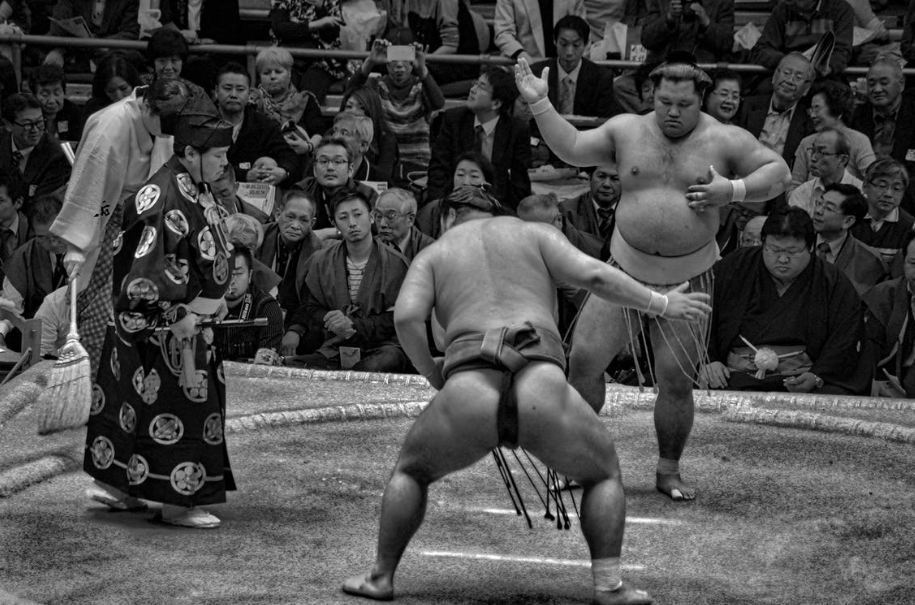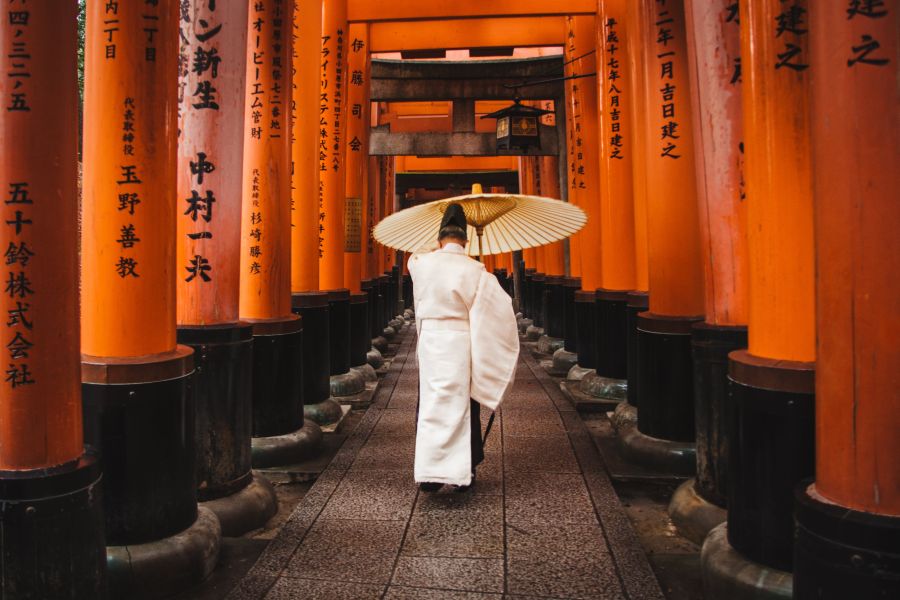What Did Zen Buddhism Contribute to Japanese Culture?
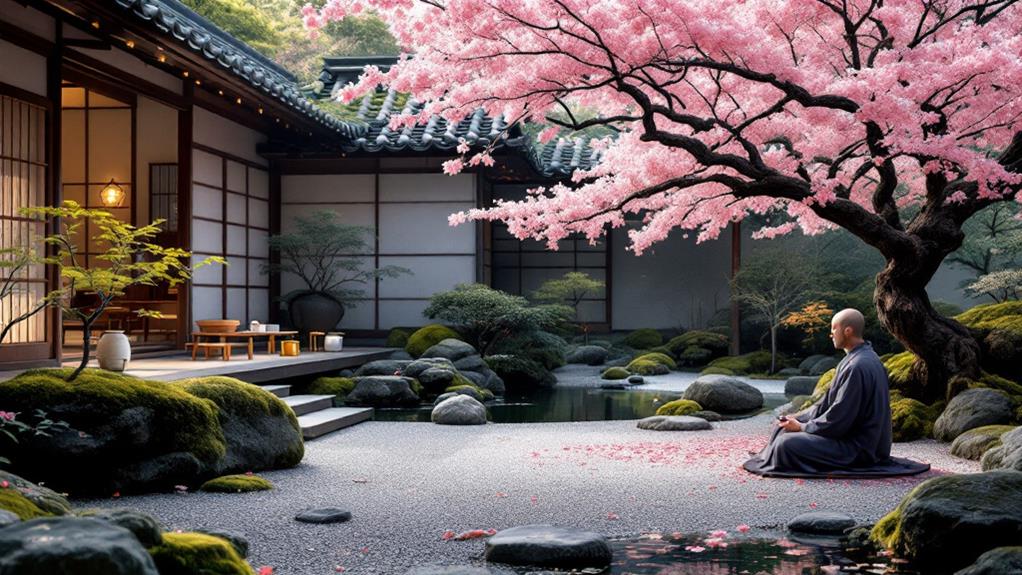
Zen Buddhism profoundly shapes Japanese culture by emphasizing simplicity and mindfulness. You'll see its influence in the minimalist art of the tea ceremony, where harmony and tranquility take center stage. Ink paintings capture essence with bold brushwork and balanced empty spaces, while Zen gardens offer meditative and serene atmospheres. Architecture and ritual practices reflect Zen principles, focusing on harmony with nature and deep engagement with daily tasks. In martial arts, Zen fosters self-control and mental clarity under pressure. By embracing these elements, you enrich your understanding of how Zen transforms diverse aspects of Japanese life and traditions.
Influence on Japanese Art
Zen Buddhism has profoundly shaped Japanese art, infusing it with principles of simplicity, harmony, and mindfulness. This influence is particularly evident in the Japanese tea ceremony, where Zen's minimalist approach emphasizes harmony, respect, purity, and tranquility. As you investigate the domain of ink painting, you'll notice how Zen's minimalist approach emphasizes the beauty of empty space and bold brushwork, capturing the essence of a subject with just a few strokes. Tea aesthetics also reflect Zen's influence, where the serene and humble tea ceremony becomes an art form embodying mindfulness and quiet introspection.
In garden design, Zen's impact is evident through landscapes that evoke balance and tranquility, often featuring elements like raked gravel, stones, and carefully pruned plants. This design fosters a meditative atmosphere, inviting you to find peace within nature's simplicity. Calligraphy styles in Japan mirror Zen's philosophy, focusing on each brushstroke's fluidity and intentionality, transforming written language into visual poetry.
Zen Buddhism also leaves its mark on sculpture forms, with statues that embody the stillness and contemplative spirit of Zen. Ultimately, the poetry influence is undeniable, where haiku and other forms distill profound thoughts into a few lines, encouraging you to reflect deeply on life's fleeting moments. Zen art invites you into a sphere of mindful appreciation.
Zen and Japanese Architecture
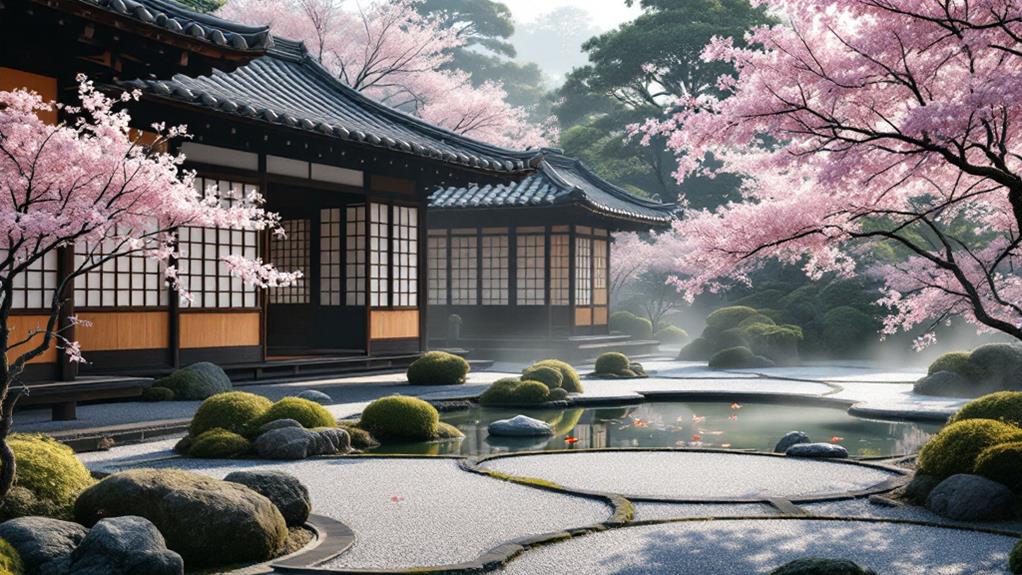
While exploring Zen's impact on Japanese culture, you'll find its principles intricately woven into the fabric of architecture as well. Zen Buddhism emphasizes simplicity and tranquility, which profoundly influenced Japanese architecture through the adoption of minimalist design. This approach focuses on creating spaces that promote peace and contemplation, aligning with Zen's core teachings. Zen gardens, or karesansui, are a perfect example of this influence. These dry landscapes use rocks, gravel, and carefully placed plants to symbolize natural elements such as mountains and rivers. Temples like Ginkaku-ji and Ise Shrine also embody these principles, with their harmonious design elements fostering a deep connection to nature. As you walk through these gardens, you'll notice their intentional simplicity, which encourages meditation and reflection. The act of raking gravel into patterns mirrors the practice of mindfulness, drawing you into a state of calm awareness. In traditional Zen temples, you'll see open spaces, sliding doors, and tatami mats that reflect minimalist design principles. These elements create a seamless connection between indoor and outdoor environments, inviting nature inside. By reducing distractions, such spaces allow you to focus on the present moment. Altogether, Zen's emphasis on simplicity and harmony has left a lasting mark on Japanese architecture, crafting environments that foster serenity and introspection.
Impact on Rituals and Ceremonies
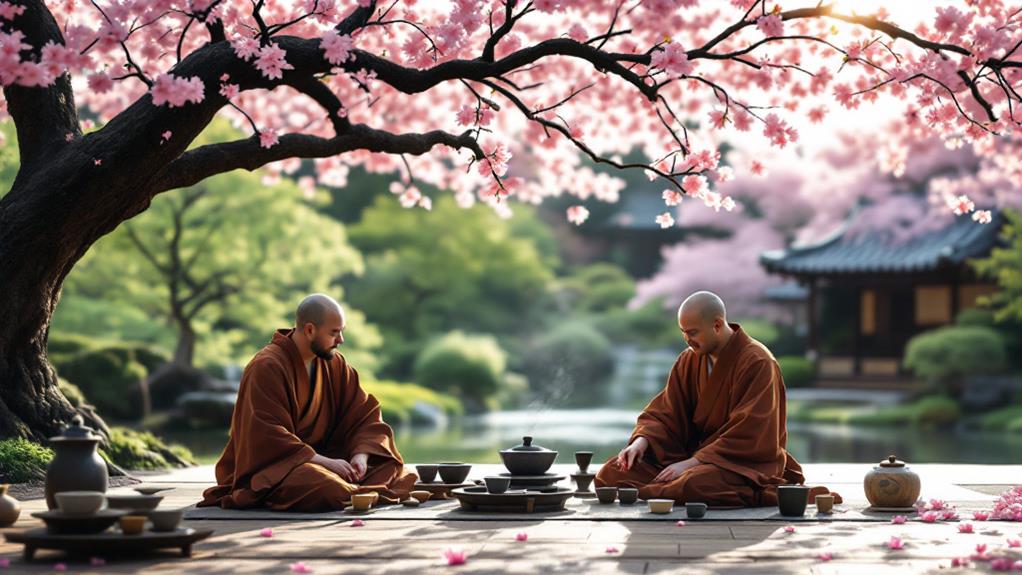
In exploring the impact of Zen Buddhism on Japanese rituals and ceremonies, you'll learn how its principles have shaped practices like the tea ceremony and ikebana, or flower arranging. Zen Buddhism emphasizes mindfulness and the beauty of simplicity, and these elements profoundly influence these cultural practices. Tea ceremonies, for example, aren't just about drinking tea; they're about creating a meditative space where you focus on each movement, the texture of the tea, and the surrounding environment. This reflects Zen's focus on living fully in the present moment.
Similarly, ikebana isn't merely about arranging flowers. It's a meditative practice that encourages you to appreciate the natural form of each element, arranging them in a way that captures their essence. This practice embodies Zen's appreciation for the fleeting beauty of nature and the harmony of asymmetry.
In both rituals, the process is as significant as the outcome. You're encouraged to engage deeply with the materials and the environment, fostering a sense of peace and mindfulness. Zen Buddhism's influence guarantees that these ceremonies are more than tasks; they're transformative experiences that promote inner balance and a deeper connection to the world.
Zen's Role in Martial Arts
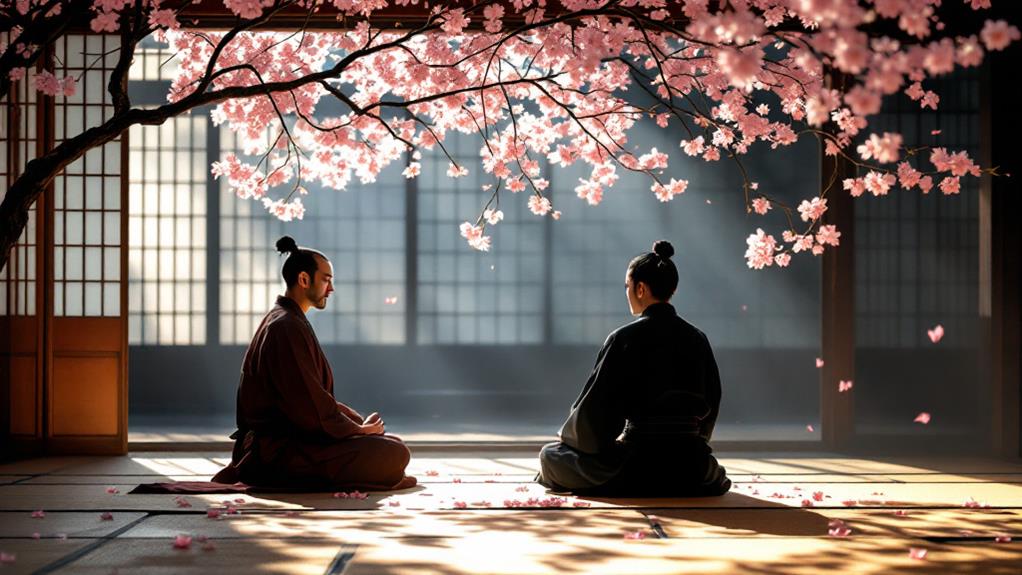
Within the domain of martial arts, Zen Buddhism plays a significant role in shaping both mindset and practice. When you engage in martial arts, Zen's influence guides your understanding of self-control and focus. Through mindfulness training, you learn to center your thoughts, allowing you to react in the moment rather than being distracted by external factors. This approach fosters a heightened awareness that's essential when facing opponents or challenges.
Zen Buddhism also emphasizes discipline development, a core principle in martial arts. You cultivate patience and persistence, knowing that mastery is a lifelong expedition. Discipline keeps you committed to practice, helping you improve your skills and mental fortitude. By integrating Zen techniques, you gain the ability to remain calm and composed under pressure, important in both competitive and combative situations.
Moreover, Zen's meditative practices support your mental clarity. When you practice meditation, you strengthen your ability to maintain focus and manage stress. This mental sharpness translates directly into your martial arts performance, making you more adept and resilient. By embracing Zen principles, you not only elevate your martial prowess but also enrich your personal growth and self-awareness.
Philosophy and Daily Life Practices
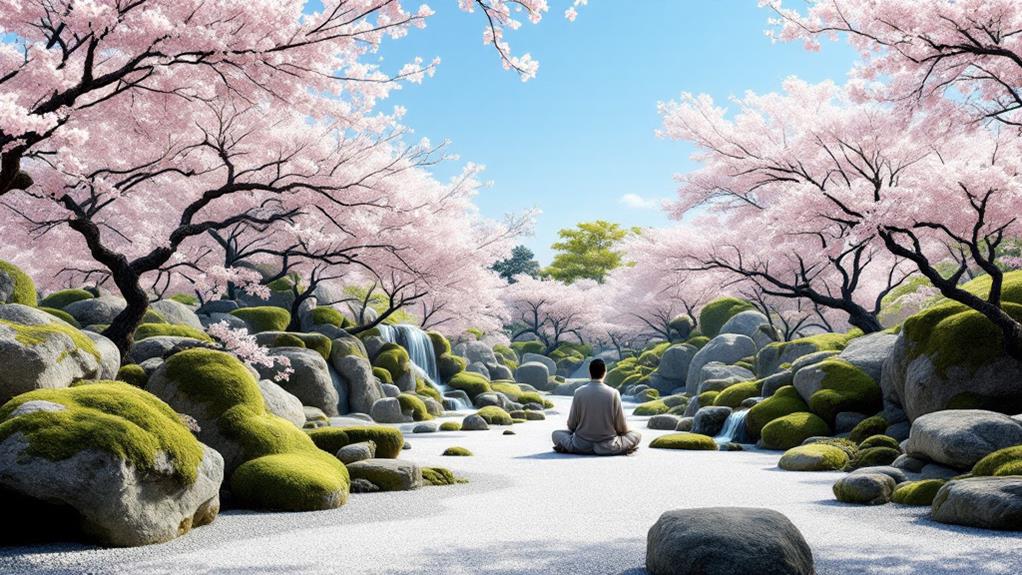
Zen Buddhism profoundly influences daily life through its philosophy and practices, offering a path to simplicity and mindfulness. You can adopt Zen's essence by incorporating mindfulness practices and meditation techniques into your daily routine. Doing so encourages a deeper connection with yourself and the world around you. Here's how Zen philosophy can be applied:
- Mindful Breathing: Focus on your breath as a primary meditation technique. By centering your attention on each inhale and exhale, you cultivate awareness and tranquility. This practice is simple yet powerful, helping you stay present amid life's chaos.
- Minimalism: Zen emphasizes simplicity, teaching you to appreciate less clutter in your life. By reducing unnecessary possessions and distractions, you create space for mindfulness practices. This leads to a clearer, more focused mind, making it easier to handle daily challenges.
- Tea Ceremony: Engage in the traditional tea ceremony as a form of moving meditation. It's not just about drinking tea but appreciating every movement and gesture. This ritual improves your ability to find calm and meaning in routine tasks.
Incorporating these elements into your daily life fosters a sense of peace, helping you navigate the modern world with grace and mindfulness.

